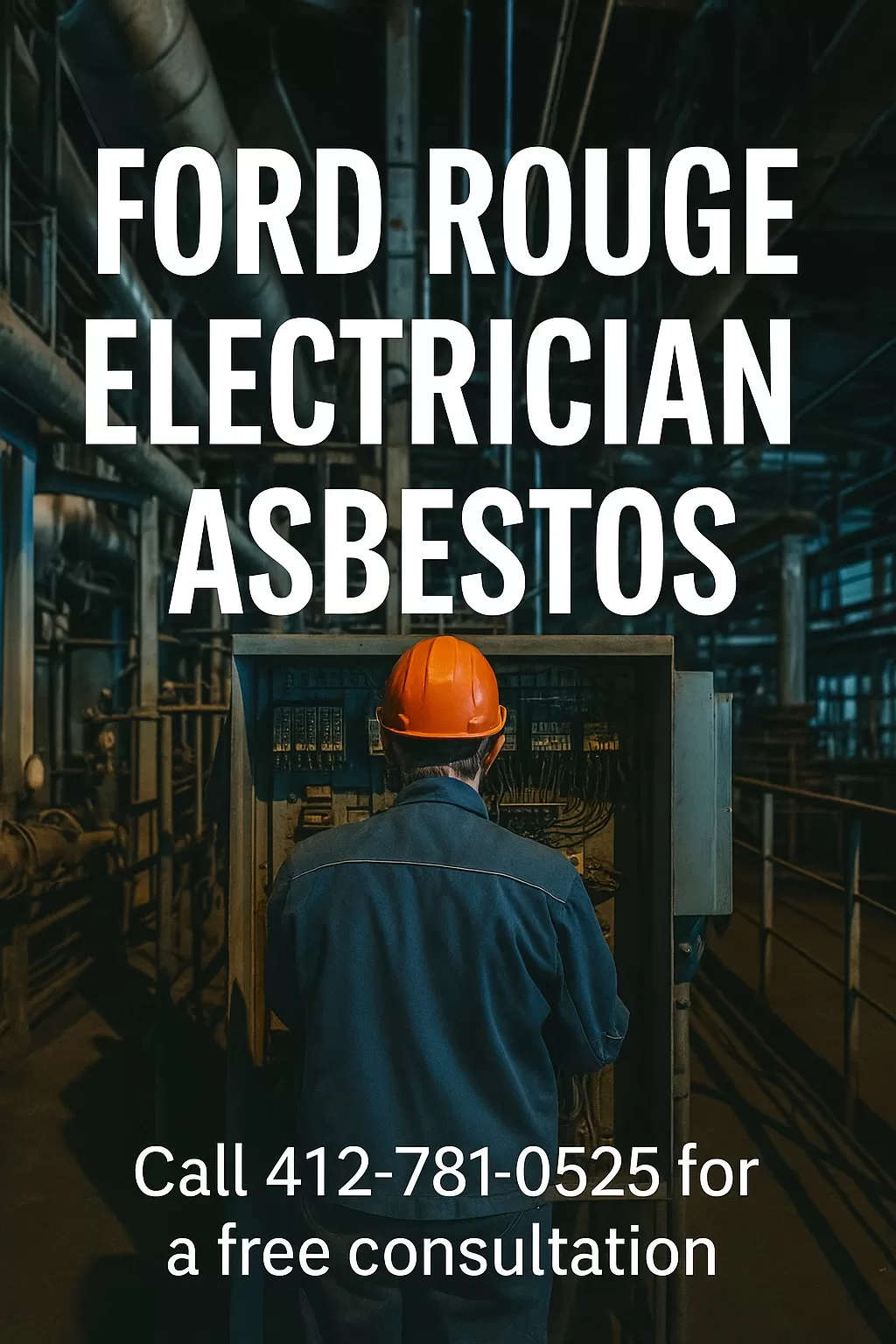Ford Rouge Electrician Asbestos exposure has caused deadly diseases like mesothelioma among Michigan tradesmen who worked in high-heat industrial environments. For decades, electricians worked in confined areas where asbestos-containing materials (ACMs) were present—in conduit insulation, arc chutes, wire coatings, and fireproof panels. Today, many of those workers are facing serious illnesses like mesothelioma or lung cancer. If you or someone you know was an electrician at Ford Rouge, you may have legal rights.
Why Ford Rouge Electricians Faced Asbestos Exposure
The Ford Rouge Complex in Dearborn, Michigan, was once one of the largest integrated industrial sites in the world. The sheer scale of operations—smelters, blast furnaces, and multiple powerhouses—meant miles of electrical infrastructure and frequent maintenance work. Electricians had to:
- Pull cable through asbestos-lined conduits
- Service switchgear insulated with asbestos arc barriers
- Replace motor controls and fuse boxes with ACM panels
- Work in close proximity to asbestos-wrapped steam lines
This exposure was often invisible—and deadly.
👉 Search Asbestos Job Sites in Michigan
Legal Help for Ford Rouge Electricians
If you or a loved one developed mesothelioma after working as an electrician at the Ford Rouge plant, you may be eligible for compensation. Lee W. Davis has helped thousands of industrial workers secure justice after asbestos exposure in Michigan. There are strict time limits to file—don’t wait.
📞 Call 412-781-0525 for a free consultation.
Check If Your Family Was Exposed
Get your free guide instantly + a confidential case review.
🔒 100% Confidential. No obligations.
FAQ: Ford Rouge Electrician Asbestos
Q: What products exposed electricians to asbestos at Ford Rouge?
A: Electricians were exposed through asbestos wire insulation, arc chutes, bus bars, motor starters, and heat-resistant gloves and blankets.
Q: Can I file a claim even if the exposure happened decades ago?
A: Yes. Mesothelioma can take 20–50 years to appear. Michigan law allows claims within specific windows from diagnosis.
Q: Is this the same as a class action?
A: No. Each case is evaluated individually based on your unique exposure history, medical diagnosis, and employment record.

